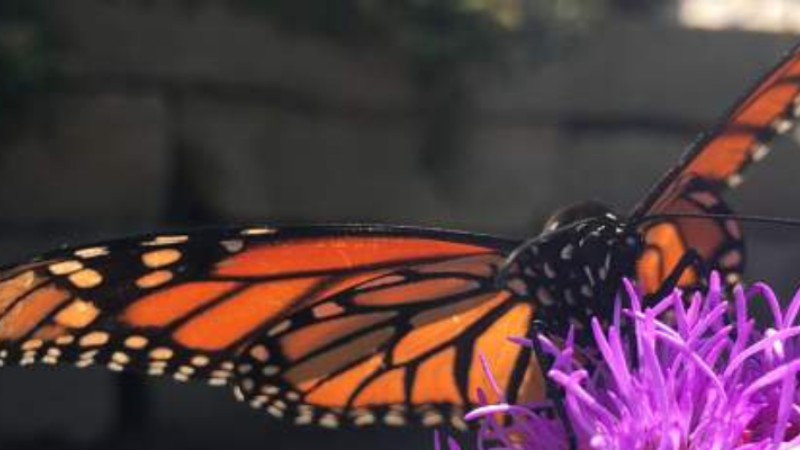
If you follow monarch conservation news, you’ve probably heard that the International Union for the Conservation of Nature (IUCN) recently announced it has added migratory monarchs to their “red list of threatened species” as endangered. What, exactly, does this mean?
The IUCN is an international membership organization based in Switzerland with a mission to “Influence, encourage and assist societies to conserve the integrity and diversity of nature and ensure that any use of natural resources is equitable and ecologically sustainable.” The IUCN approach is scientifically robust, and they are one of two environmental organizations with official United Nations Observer Status.
The IUCN’s monarch designation amplifies the need for international cooperation and a large-scale, unified approach to protect the North American monarch and its migration. As a joint venture, the MJV exists to support this unified approach, whether you are a non-profit, academic program, government agency, or motivated individual. We can all lend a hand in this process by planting, restoring, and advocating for monarch habitat (regionally native milkweeds and nectar resources) as well as participating in other conservation actions. We’re here to help you get started. Please explore our website for a myriad of ways to get involved.
The IUCN announcement is unrelated to the U.S. Endangered Species Act (ESA). Monarchs have not been listed as an endangered species in the U.S. The IUCN announcement brings no new protections or regulatory authority, as an ESA listing would. The ESA monarch butterfly listing remains on the same trajectory as before, with an expected final ruling in the federal fiscal year 2024. Feel free to learn more about the U.S. Fish and Wildlife Service's assessment of the monarch as "warranted but precluded" for listing under the ESA on our blog.
“It's disheartening that migratory monarchs have reached the level of this designation being warranted,” says MJV Executive Director Wendy Caldwell, “but we remain hopeful that the growing momentum, awareness, and engagement around this issue will make a difference for monarchs and other pollinators.”
Let’s take action together for monarchs.
Photo credit: Caroline Harvey
